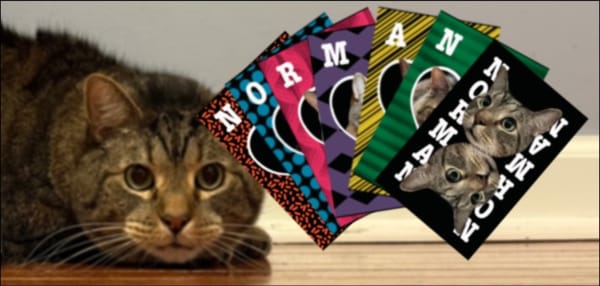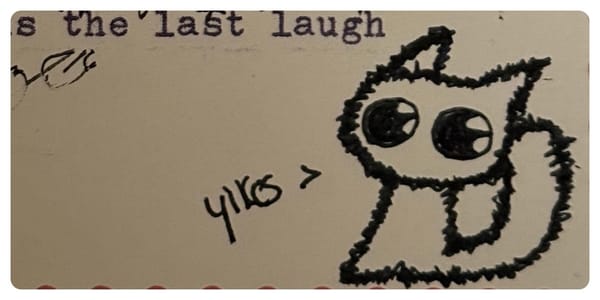Escaping the Endless Scroll - Part Two: What Happens When Our Friends Are Electric
My several hundred word post about having a stroke didn't go viral. I didn't receive a mountain of condolences or Get Well Soons. The former would have been disturbingly strange. The latter was actually pretty disappointing.

The previous post of this series left us with a couple questions:
Did it matter if I posted that I'd had a stroke on social media? Would anyone notice?
The answer is: not really. Most of the engagement I received was from friends I'd already told via individual chat or phone call. A couple people from the 1,000 or so people connected to me via social media commented. There were a few likes. But that's it. In fairness, October 2022 had a lot going on.
My several hundred word post about having a stroke didn't go viral. I didn't receive a mountain of condolences or Get Well Soons. The former would have been disturbingly strange. The latter was actually pretty disappointing.
I had worked pretty hard to filter the connections I had made to this point to people I could say I knew. Some were people I had met in real life at conventions or other writerly events. Others were folks I had interacted with online to the point where I felt like we had developed at least a bit of camaraderie. I could tell you at least one fact or memory about the majority of them, which speaks to a lot about my ability to surpass Dunbar's number. Take that anthropologists, nyah.
However, the answer to "would they miss me if I were gone" seemed to be a resounding "no," given certain variables for missing and gone. "Missing" would be whether they would notice if my posts were no longer in their feeds. "Gone" is just going offline from social platforms and no longer interacting with them. Given what I knew about social media and how it worked, I knew it wasn't because no one cared. It was because the algorithm didn't care.
Because of course the algorithm cares and has a personal interest in yours truly.
We have a tendency to anthropomorphize the algorithms that govern how social media works. This is partly because humans just be like that. There is a rare human who hasn't had the urge to put googly eyes on at least one appliance and if they tell you they haven't, they're lying. Probably. Or have never seen a googly eye before[1].
Over the years I've had some acquaintances from social media tell me that they feel like they've been shadow-banned by the algorithm. For the "normal" user this can be an irritation or a fun paranoia. However, the vast majority of the people I spoke to weren't just using social media to stay in touch with high school friends. These were folks who relied on these platforms for their livelihoods and literally couldn't afford to not have visibility. The Konami Code was you needed social media to get that job, sell that book, get your art seen. When income gets involved, people become a lot less likely to jump ship into unknown waters.
But then they get shadow-banned. Or they can't get engagement. The cause was the algorithm, always the algorithm. It makes sense they felt personally targeted. It affected them personally, after all.
The eldrichness of the algorithmic calculations that don't see us, much less care about us individually, are harder to understand than individual malice. We know what to do when we're being picked on. We don't know what to do when gods we don't worship don't care about us but still make our lives worse.
So instead we create belief systems to cope:
- "I have broken an invisible rule and if I can figure out what it is, I'll be successful"
- "If I get the 25 comments, that can make me visible to the machine and people will buy my thing"
- "If I know what the magic sequence of behavior is, I'll go viral and people will love me."
These beliefs are a lot more personally manageable than:
- "I am a helpless cog in an attention-generation machine whose purpose is to churn users into money for the social media platform and the company stakeholders"
- "My frustration at this process is meaningless in the grand scheme of things and there is nothing I can individually do to change the way things work."
Humans are shockingly susceptible to this sort of thing. We always want the cheat codes to our existence because not being able to Konami Code our way out of it is just too depressing. We are on the constant hunt for the right combination of behaviors and beliefs, which makes us less likely to step free of the machine.
I likely wouldn't have broken free if not for the stroke.
In the midst of the post-pandemic everything going to the next level of hell, I told my therapist about how doom scrolling was giving me extreme anxiety. As gently as she could, she asked "what would happen if you reduced the time you spent on social media?"
My immediate response (internally) was NOPE. I couldn't leave my friends behind. How would I talk to them? How would I see the memes? Would I exist if I wasn't on Facebook? I told her that it seemed like it would be pretty difficult and I wasn't sure what would happen. So we worked on other tools that didn't involve breaking my addiction to attention.
But now the addiction had been broken. What did I do now?
Well, I went home. For the first couple weeks, I couldn't taste umami or sour, so I promptly went out for sushi and ordered lemonade. I figured out that taking a bath when half of your body didn't know what to do with temperature was very strange. I watched thirteen seasons of Spongebob Squarepants on repeat for an entire month while I recovered[2]. I messaged back and forth with friends outside the social media frameworks. My circle of connection shrank, but it didn't really make much of a difference because I was spending the entire month resting my brain in the hopes that the damage hadn't been too bad.
My social media posts stopped after ten years of at minimum daily original content. No one noticed to the point where they felt compelled to reach out. I had moved on, it wasn't them, it was me.
But what next? What did I do with this debris of my online presence?
Continued in Part Three: Deprecating the Attention Generator
[1] As my basis for this claim, I have a sample size of about ten people I personally know and the minor plot device in Everything Everywhere All At Once. The only peer review is from the people who nod and smile when I tell them things.
[2] I've been calling it Spongebob Horror Pants because wow is there a lot of very dark metaphors about life and existence in there. In this essay I will…



